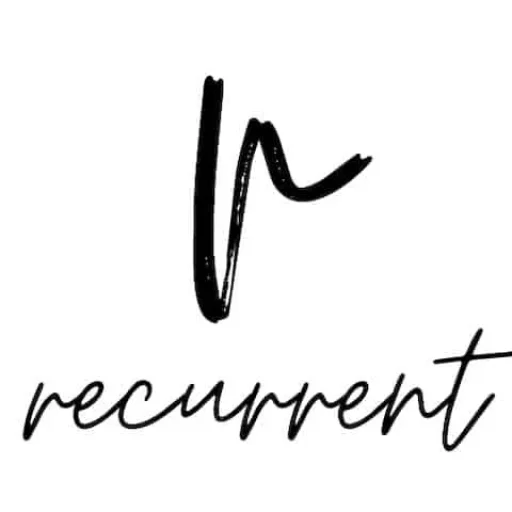In today’s post we’re going to look at how you can save hundreds of dollars by doing a few simple comparisons when your home and contents insurance is up for renewal.
With rising insurance costs and growing premiums every year it’s more important to try and find the best deal you can by putting in a little bit of time and effort. We look at 3 methods you can easily do that shows you how to easily find the best deal.
3 Ways To Get Insurance Quotes
There are three ways you can do a comparison of all insurance companies to find the best deal and I have grouped these as follows:
- Insurance Companies
- Insurance Brokers
- Insurance Aggregators
Let’s look at each of these types and explain some of the popular pros and cons:
Insurance Companies – Going Direct
If you have the time you could do what I recently did when renewing our recent home and contents insurance by searching for insurance companies, navigating to their site, clicking on “Get Quote” and then progressing through each of their prompts to get the final result of how much it was going to cost me.
When performing this comparison be mindful you don’t just try insurers you know of – be sure to try some you have never heard of before. In our recent post on scouring for cheap home and contents coverage I ended up choosing an insurance company I had never been with before! And yet, if I only tried insurance providers that I knew I would have missed out on getting the best deal.
So do be mindful if you’re going to try this option that you give everyone a fair go – even those companies you may never have heard about.
Pros and Cons
The biggest benefit I’ve found when choosing this method is that insurers are likely to have better discount deals for new customers.
The hardest aspect on doing this method is that it takes the longest to complete. Also, be prepared to have your inbox flooded with reminders and other insurance offers.
The reason why it takes so long to complete this thorough analysis is that you will need to introduce yourself to each insurance company you would like a quote from. You will soon come to appreciate form design and be an expert on tabbing through form fields by the time you’re done. Hopefully your browser can help automatically populate some of the common fields for you to help save some time.
Of the negatives there are a couple of ways you can alleviate them:
- You can elect on some forms not to provide your email address – this will result in less marketing emails in your inbox.
- You can just select a small handful of insurers – you don’t have to navigate to every single insurer. It depends on how much time you have available. ( In my most recent renewal of our home and contents insurance it took me no more than 20-25 minutes to get all the quotes listed.)
But, if time is of the essence then you may want to use another popular service that has sprung up over the years and is especially popular with small businesses and companies, and this is…
Insurance Brokers – Getting Experienced Help
Insurance brokers are businesses that take your insurance requirements and then go to the market with your needs and find you the best insurer.
Therefore, it’s quite important to make sure your insurance broker is aware of your needs and you would need to provide a little more detail to your insurance broker if you would like them to be of good service to you.
Information they will need would be no different to the information you would otherwise provide to an individual insurer (as detailed above).
Things such as:
- Your personal details (address, name, date of birth, etc)
- What type of coverage you are seeking
- What is most important to you (i.e. cost, ease of making claims, coverage, brand loyalty)
However, just as it takes time in searching for a good insurer, it similarly is no different in finding a good insurance broker. There are several around nowadays as their popularity has grown in the small business space and it therefore can take some time finding the right one for you.
Several ways you can find a good one is by:
-
Word of mouth – this is how I came across a good insurance broker when I initially started using one many years ago (they’ve since been bought by a provider and are no longer around).
- Don’t be afraid to ask if any friends or family members use one.
- Searching on the internet and looking around for reviews – not that reviews can be trusted completely, but hopefully there would be a few genuine ones that could help siphon out any brokers that have gone sour.
Pros and Cons
The good elements when using an insurance broker is that they are on your side, they know the industry and all the terminology and can help you understand what you’re getting when you’re signing up with an insurer – this is fantastic when you’re first starting out with insurance.
Not only do they save you some time by doing all the leg work for you, but they can also be a point of support when your putting in a claim – they can easily check your claim to make sure you’ve filled out the details correctly. Again, this is great help when your new to insurance.
The only negatives though is the insurance broker will be charging fees for their service offered to you. Therefore, if your only goal is to find the cheapest coverage this method may not be the best option.
There may also be instances where the insurance broker may receive a commission from the insurer they offer you as the best fit if the broker can get you to sign up, but a good insurance broker would make you aware of these commissions they are receiving before you do sign up . As this does cause some conflict of interest with cases like this it’s important to always check with your insurance broker if they do get some from of kick-back from any insurance companies they recommend.
I’d recommend even before giving any details to the insurance broker knowing what their policies are in regards to receiving commissions from insurance companies they source and recommend. Some insurance brokers will let you know that they don’t receive any commissions or rewards from insurers, and others will let you know that they may receive some form of commission. Either way, be sure to find out before signing up on any recommendations presented.
If the conflict of interest does concern you a little with insurance brokers, but you still don’t have the time to scour through all the insurance providers websites there is one other alternative that can help…
Insurance Aggregators – Using Technology
What does aggregate mean in insurance terms?
An insurance aggregator is a service that collects all the quotes available from insurance providers and presents them all to you.
They do the sourcing by sending your information through to each provider and then try to display all the information in a meaningful and helpful way.
Insurance aggregators are becoming more popular as more and more insurance companies provide access to their services through connections to their quoting services.
Pros and Cons
Insurance aggregators are a quick and easy way to get quotes from dozens of providers. You only need to enter a few details and after a minute or so you will receive your list of quotes. Should you want to change some details, you can easily do that too and it will then refresh your quotes with the changes made.
Unfortunately there are some issues which you need to be made aware of:
- Not all aggregators source the entire market. Some aggregators only source insurers where they know they will get a commission from recommending you.
- When your information is collected they will keep you on their marketing lists and will send you marketing material. It is very difficult to progress to the final quotes screen without providing an email address.
- Some insurance aggregators will try to make additional money by up-selling other types of insurance as you progress through the quote screens, be mindful of what you’re ticking and clicking as your going through.
To alleviate these negative concerns you could do the following:
- Provide an old email address that you don’t check as often.
- When provided with the aggregated list scan the list to see if you’re getting a good representation of the market. Perhaps perform a quick search for “home and contents insurance” in Google and see if the list of top 10 insurance providers can be found in the list provided by the aggregator.
An insurance aggregator is a great way to enter your details once and have them ferret off and get your costs for you. They are an insurance service becoming increasingly popular because of how they save you time and effort.
How to Save With Your Insurance Costs?
So in this article we have explored three main ways you can hunt for a good deal with your next home and contents insurance quotes.
Therefore, my recommendation would be as follows:
- If you have unique or complex needs with your home and its contents then you may want to speak to a human who can talk you through your complexities and advise you of your options. Insurance brokers have the knowledge and experience to help guide you so I would start with them, rather than starting with an individual insurance company.
- If though your needs are quite normal I would then recommend using the services of an insurance aggregator. You would then enter what you need covered into their form and they would then present you with all the options.
- Finally, as a check, I would go to the top 2 to 3 insurance companies from the insurance aggregator’s list to see if I could get a better deal going solo. I’d also do a quick Google search to see if there were any insurance companies that were missed from the aggregator’s list and see if they provide a better deal.
Conclusion
Overall by being a little diligent and spending 20-30 minutes of your time performing this work you should be making a few hundred dollars in savings each year.
Read how an insurance aggregator helped save us over $170 when we recently renewed our home and contents insurance.

